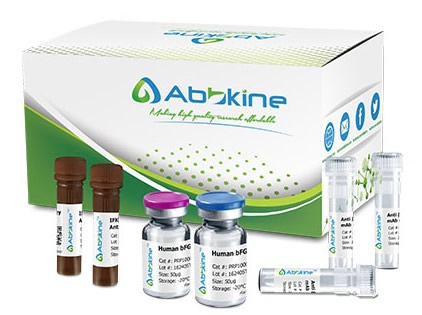The deduced 242-amino acid SGY protein, which is 22% identical to DKK3 and 59% identical to the mouse Sgy sequence, possesses 2 potential N-glycosylation sites. Northern blot and in situ hybridization analysis revealed expression of a 1.0-kb Sgy transcript in adult mouse testis and day-11 and -15 embryos. Western blot analysis showed that SGY is secreted as a 40- to 50-kD protein; deglycosylation reduced the protein by 5 to 10 kD. Functional analysis determined that SGY does not block Xenopus Wnt8, Wnt3a, or Wnt2b induction of a secondary axis in frog embryos.Scott (2000) mapped the SGY gene to chromosome 19 based on sequence similarity between the SGY sequence and the chromosome 19 clones LLNLR-254A7 and LLNLR-278H5 .
Human Dickkopf-like protein 1 (DKKL1) ELISA Kit employs a two-site sandwich ELISA to quantitate DKKL1 in samples. An antibody specific for DKKL1 has been pre-coated onto a microplate. Standards and samples are pipetted into the wells and anyDKKL1 present is bound by the immobilized antibody. After removing any unbound substances, a biotin-conjugated antibody specific for DKKL1 is added to the wells. After washing, Streptavidin conjugated Horseradish Peroxidase (HRP) is added to the wells. Following a wash to remove any unbound avidin-enzyme reagent, a substrate solution is added to the wells and color develops in proportion to the amount of DKKL1 bound in the initial step. The color development is stopped and the intensity of the color is measured.
Human Dickkopf-like protein 1 (DKKL1) ELISA Kit listed herein is for research use only and is not intended for use in human or clinical diagnosis. Suggested applications of our products are not recommendations to use our products in violation of any patent or as a license. We cannot be responsible for patent infringements or other violations that may occur with the use of this product.
Find more details at http://www.abbkine.com/product/human-dickkopf-like-protein-1-dkkl1-elisa-kit-kte62037/
bio-equip.cn




